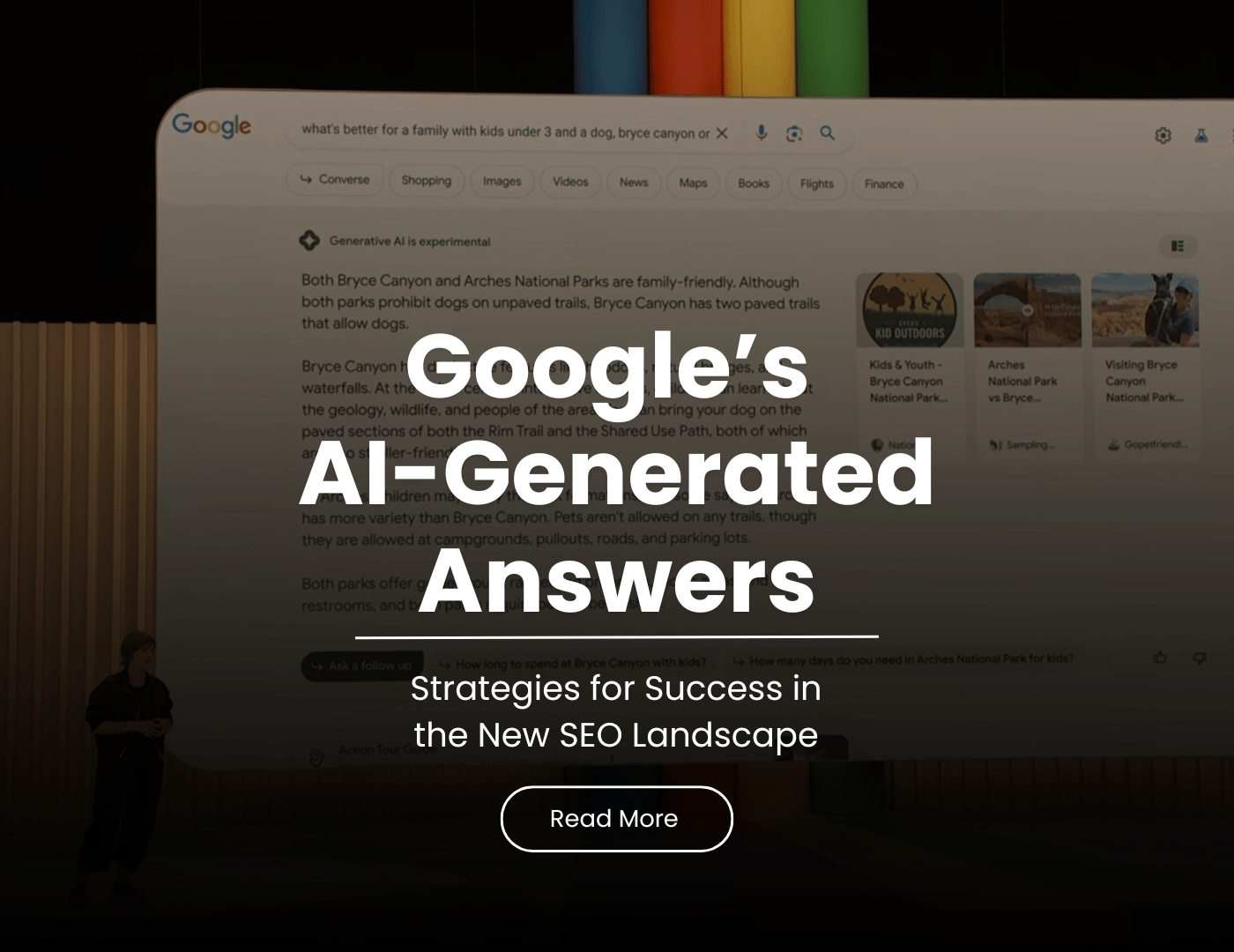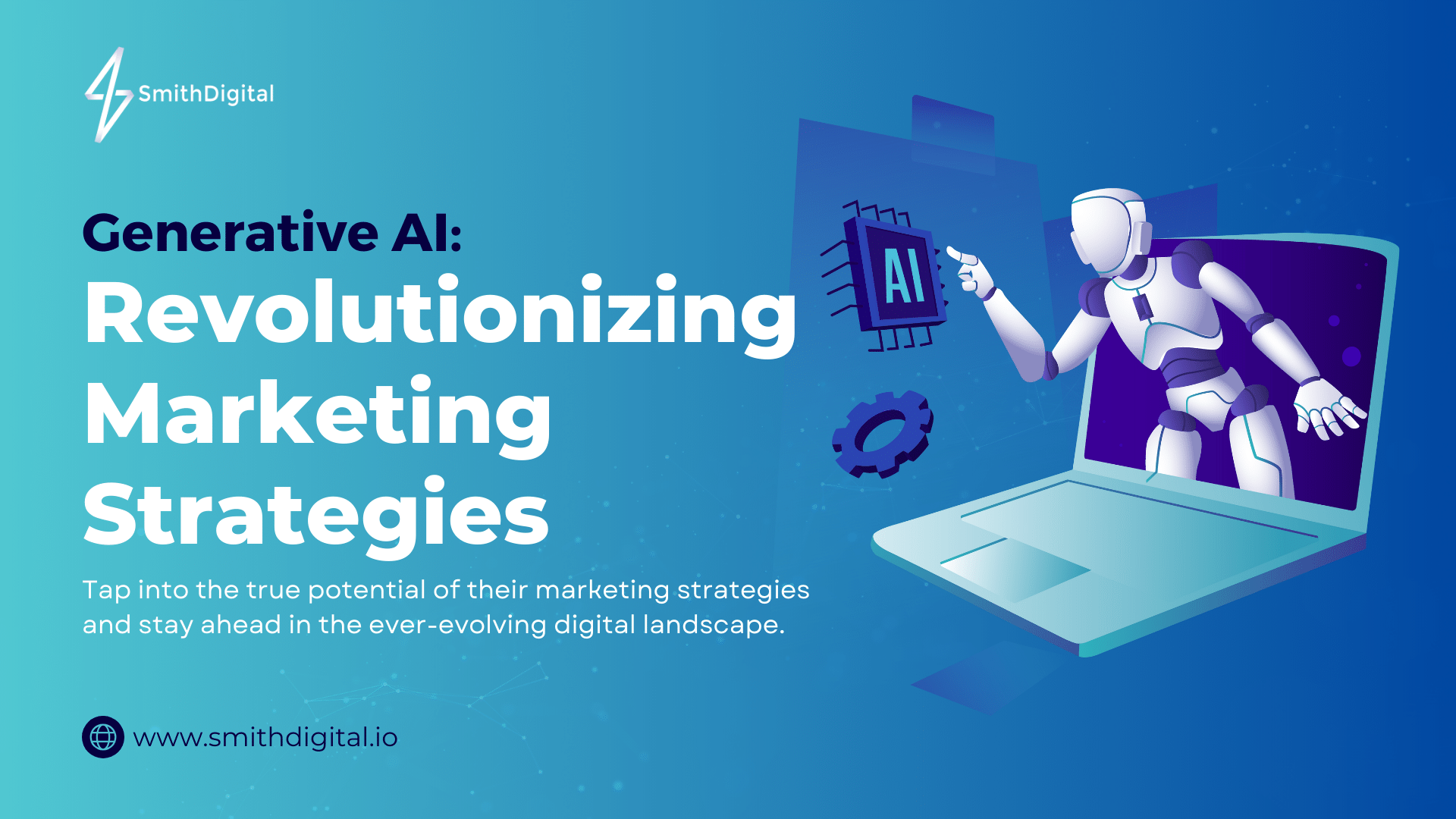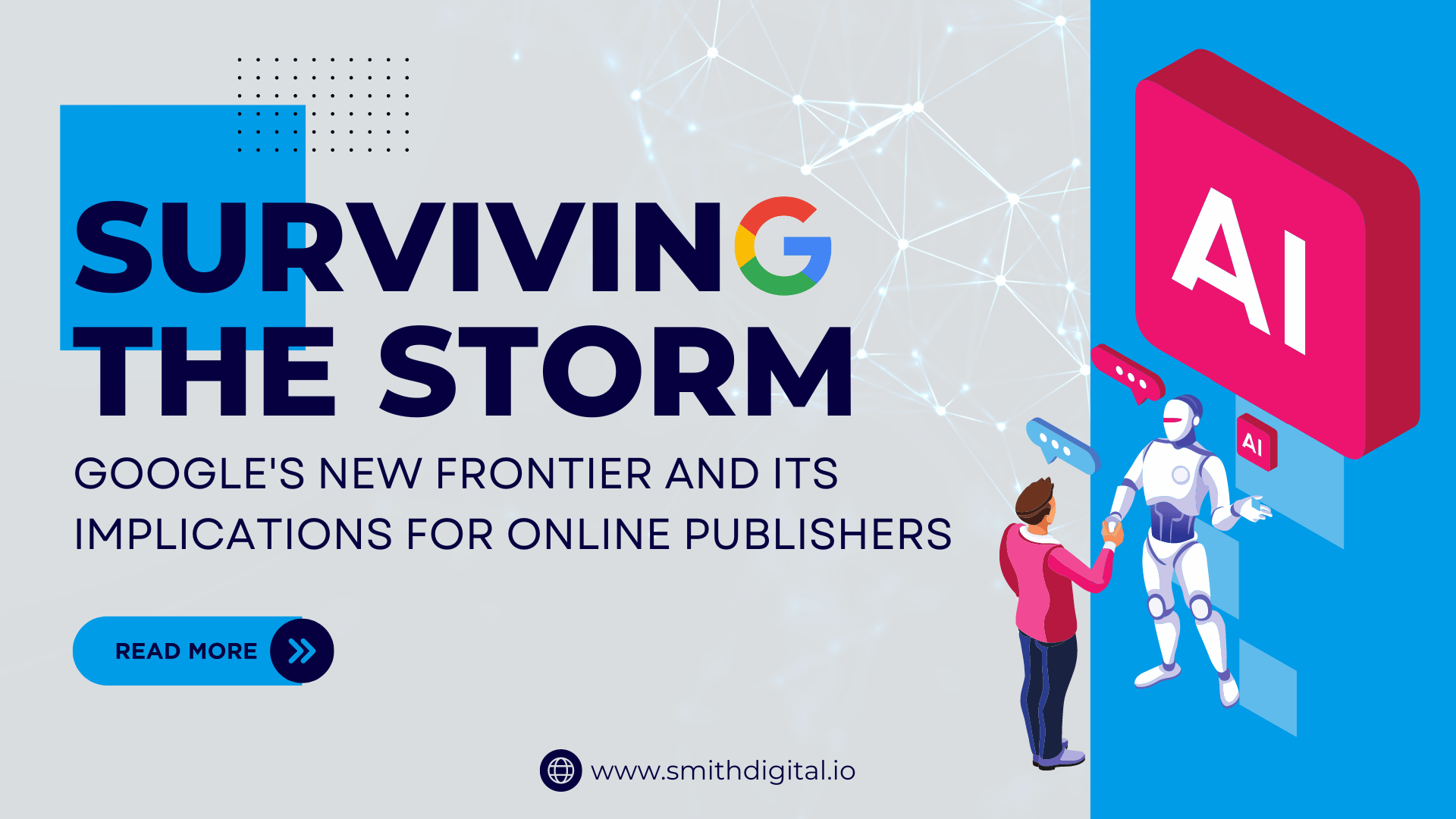Fueling Growth: Proven Strategies for MSP Lead Generation
Unleash the power of your IT Managed Service Provider (MSP) business with our game-changing lead generation strategies. We understand the challenges...
5 min read
Marketing
:
May 29, 2024 12:59:16 PM

Recent advancements in SEO have sparked a major transformation with the integration of AI-generated responses on Google. This shift holds significant implications for businesses, digital marketers, and the overall online environment. This post will explore the impact of these changes and provide ideas and insights on how businesses leaders can adjust and win in this evolving AI fueled landscape.
.png?width=1920&height=1080&name=personal%20blog%20templates%20(15).png)
The integration of AI-generated answers in Google's search results has disrupted the traditional SEO model. These AI answers are trained on vast amounts of data, including the content created by businesses striving to improve their SEO. This raises significant questions about data ownership and attribution, which are yet to be resolved in the courts. However, the immediate impacts on businesses are clear:
Less Organic Traffic
With AI providing quick answers directly in search results, users are less likely to click through to individual websites. This reduces organic traffic, which many businesses rely on for sales and lead generation. The traditional "10 blue links" model, where users browse a list of search results, is becoming less relevant as AI-generated snippets provide concise answers on the search results page itself. Consequently, websites that previously thrived on organic search traffic may see a significant decline in visitors, impacting their overall web presence and visibility.
Less Sales
Reduced traffic inevitably leads to fewer sales opportunities. Companies that depend on organic search traffic are particularly vulnerable. E-commerce sites, for instance, may experience a decline in conversions and revenue as fewer users visit their product pages. Service-based businesses might see a drop in inquiries and leads. The ripple effect of decreased traffic can extend to various aspects of a business's operations, from customer acquisition to long-term growth strategies. It's crucial for businesses to recognize this shift and adjust their marketing efforts accordingly.
New Sales Channels
Businesses must explore alternative sales channels to mitigate the loss of organic traffic. Diversifying marketing efforts can help offset the impact of reduced search engine visibility. Some strategies include leveraging social media platforms, investing in paid advertising, enhancing email marketing campaigns, and utilizing influencer partnerships. By broadening their reach across multiple channels, businesses can reduce their dependency on any single source of traffic and maintain a steady flow of potential customers.
For Google, the benefits are substantial:
More Time on Platform
Users spend more time on Google’s platform as they get their answers directly without needing to visit external sites. This increased engagement allows Google to collect more user data, enhancing its ability to deliver personalized content and advertisements. The longer users stay on Google's platform, the more opportunities Google has to showcase its ecosystem of services, from Google Maps and Google News to YouTube and Google Shopping. This integrated experience strengthens Google's position as the go-to source for information and services.
More Ad Revenue
With reduced organic reach, businesses will likely invest more in paid advertising to maintain visibility. Google's advertising model benefits from this shift as companies increase their ad spend to compensate for the decline in organic traffic. The competition for ad space intensifies, driving up the cost-per-click and overall ad revenue for Google. As businesses allocate more budget towards Google Ads, they also become more reliant on the platform for their digital marketing success.
Greater Market Share Dominance
Google's ability to provide instant answers solidifies its dominance in the search market. By continually improving the accuracy and relevance of AI-generated answers, Google ensures that users find what they need quickly and efficiently. This user-centric approach enhances trust and loyalty, making it difficult for competitors to challenge Google's market position. Additionally, as Google integrates AI across its suite of products, it creates a cohesive user experience that further entrenches its dominance in the digital landscape.
While these changes may seem daunting, they also present new opportunities for savvy businesses. Historical precedents, such as the dot-com boom of the 90s and the shift to mobile in 2008, show that significant disruptions often lead to the birth of innovative companies. Here’s how businesses can adapt:
.png?width=940&height=529&name=personal%20blog%20templates%20(17).png)
High-quality content is more crucial than ever. Google’s AI models prioritize reliable, authoritative content. By doubling down on quality, businesses can build trust and drive purchases. Quality content remains a cornerstone of effective SEO strategies. To achieve this:
Dependency on external platforms like Facebook or Google can leave businesses vulnerable to algorithm changes. Companies should focus on building direct relationships with their customers by collecting emails, phone numbers, and addresses. This strategy ensures that businesses maintain control over their audience and can engage them directly. To achieve this:
-1.png?width=940&height=323&name=personal%20blog%20templates%20(19)-1.png)
The digital landscape is evolving rapidly. Business leaders must stay informed about the latest trends in lead generation, sales funnels, and digital marketing. Continuous learning is essential. Allocate time each week to read, listen, watch, study, or engage in discussions about these topics. The winners of tomorrow are those who prepare today. To achieve this:
The rise of AI-generated answers in Google search results marks a huge shift in the digital marketing landscape. While it poses challenges, it also offers opportunities for businesses and marketing leaders willing to adapt. By focusing on high-quality content, owning their platforms, and staying educated, companies can navigate this new paradigm successfully and find new paths to growth.
In short, the integration of AI in search engine results requires businesses to rethink their strategies. Embracing these changes with a proactive mindset will allow businesses not only to cope with the new challenges but also to leverage them for future success. The digital marketing landscape is ever-evolving, and those who remain agile and forward-thinking will be best positioned to thrive.
Don’t let the rise of AI-generated answers leave your business behind. At SmithDigital, our marketing professionals are here to help you review your current strategies and find new paths to growth.
Contact us today to schedule a consultation and discover how we can help you stay ahead of the curve. We'll show you strategies that are driving successful results for our clients.

Unleash the power of your IT Managed Service Provider (MSP) business with our game-changing lead generation strategies. We understand the challenges...

In the fast-paced realm of digital marketing, professionals are constantly seeking an edge to drive revenue and outperform their competitors. One...

In the digital world, change is the only constant, and no one embodies this better than Google, the reigning titan of search. With an undying...